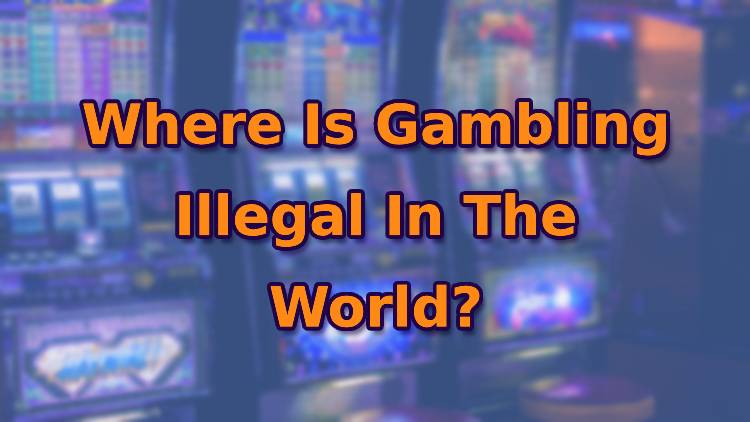
Gambling, a popular form of entertainment around the world, is regulated differently in each country. While it's a perfectly legal pastime in some countries, it is strictly prohibited in others due to religious, moral, or social reasons.
In this article, we delve into the countries where gambling is illegal, the reasons behind these prohibitions, and the penalties involved.
Where Is Gambling Legal In The World?
Throughout the world, there is a multitude of countries where gambling is legal and regulated. In these countries, the government recognises the profitability of the gambling industry and attempts to balance the risks of problem gambling with the economic benefits.
In the USA, gambling is legal nationally, with some slight differences in the finer points of the law between states. For example, the US is home to Las Vegas and Atlantic City, which are two of the world's most renowned gambling destinations. Las Vegas has become virtually synonymous with the gambling world; as soon as one thinks of gambling, it's hard not to think of the famous Vegas strip with its fountains, impressive casino hotels and lights.
Historically, all forms of gambling were prohibited in Japan. However, certain activities and loopholes allowed gambling to continue in various forms. For example, Pachinko, a game with historical and cultural significance, was not classified as a crime. The Integrated Resort Programme Law of 2016 has now made land-based casino games legal for the first time, hinting at a gradual shift in Japan's gambling regulations.
In the UK, gambling is strictly regulated by the UK Gambling Commission (UKGC) as they endeavour to combat problem gambling. All casinos (land-based and online) are required to obtain a licence to operate from the UKGC and adhere to their regulations. Another interesting point about UK gambling is that any winnings are not taxed, unlike in the US, where they are.
Where Is Gambling Illegal In The World?
Singapore
Singapore's gambling regulations are a mixed bag. National public-funded lotteries are legal, but private lotteries require specific permissions to operate. Land-based sports betting establishments are forbidden, but land-based casinos are allowed, creating a peculiar scenario for punters. They may not be able to wager on sports events, but they can still play at the roulette wheel.
United Arab Emirates (UAE)
Islamic nations generally prohibit gambling, and the UAE is no exception. Here, anyone caught gambling or betting could face up to two years in prison, highlighting the country's strict stance on the issue. The Internet is heavily censored to limit access to online casinos, further deterring gambling activities.
Cambodia
Cambodia takes a hard line on gambling due to its historical issues with problem gambling. Aside from state-funded situations like private lotteries, gambling is completely banned. However, tourists are free to gamble in the country, providing a loophole for those who wish to indulge in casino games during their visit.
Qatar
Qatar is one of the strictest countries when it comes to gambling regulations. All forms of gambling, including sports betting and lotteries, are completely banned. This total ban has given rise to an underground gambling scene, but the penalties for participation can be severe. Despite the ban, some residents still gamble online using offshore casino sites, although the government continually tries to restrict access to such platforms.
Lebanon
Lebanon, another Islamic country, maintains a firm grip on gambling activities. Unauthorised gambling of any kind is illegal, and the government can block access to online casinos. However, certain gambling websites are allowed, and land-based casinos are legal if they hold the correct state-approved licensing. Casino boats offer a legal loophole, allowing players to gamble in international waters outside Lebanese jurisdiction.
North Korea
Under the regime of Kim Jong Un, anything related to free-market activities, including gambling, is strictly prohibited for North Koreans. However, tourists are free to enjoy gambling during their visit, similar to the situation in Cambodia.
Conclusion
Gambling regulations vary widely around the world, reflecting each country's unique social, cultural, and economic contexts. While some countries embrace the economic benefits of legalised gambling, others prioritise social and religious concerns, resulting in strict prohibitions.
Regardless, gambling remains a popular pastime worldwide, demonstrating its enduring appeal despite regulatory challenges.
Note: The information provided in this article is for entertainment purposes only. Always research the gambling laws in your country before engaging in any gambling activities, whether online or offline.
